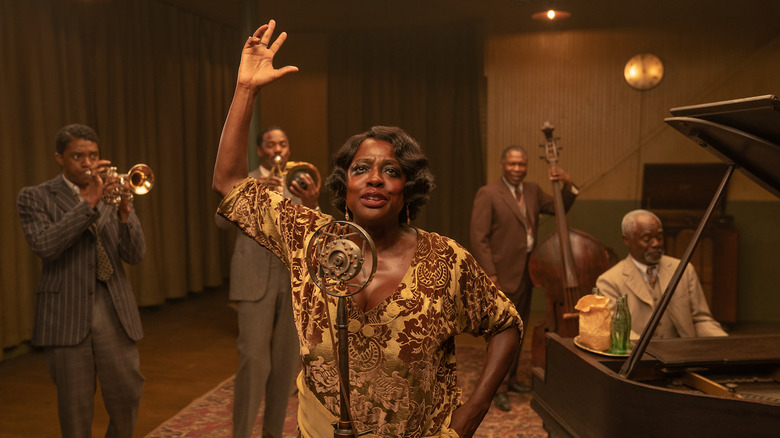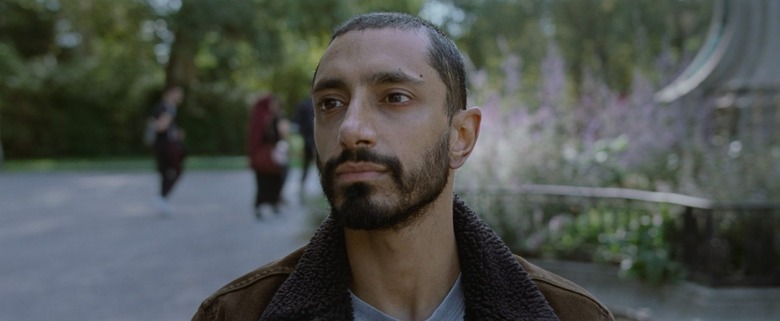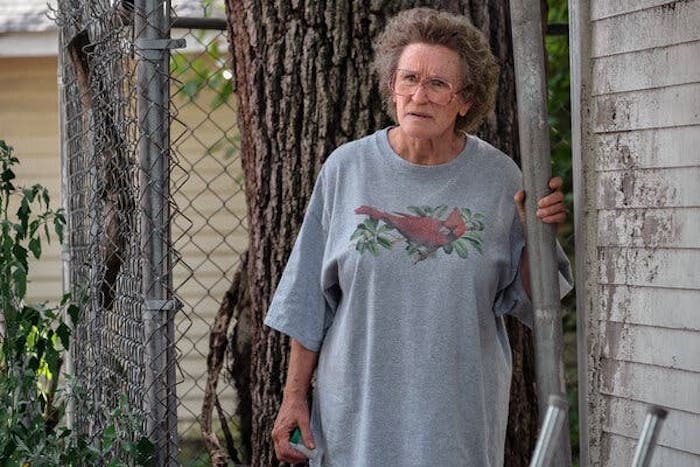2021 Oscar Stats: Two Female Filmmakers Are Up For Best Director For The First Time; Plus Historic Nods For Viola Davis, Riz Ahmed, Steven Yeun, More
Six years after #OscarsSoWhite, the Academy Awards have finally turned the tide and delivered their most diverse slate of acting nominees in history. But that's not the only historic statistic of the 2021 Oscars. For the first time in the Oscars' nearly 100-year history, more than one female director has been nominated in the best director category. One of those directors, Nomadland's Chloé Zhao, is the first woman of color to be nominated for Best Director. But while the Asian diaspora is receiving unprecedented recognition at this year's 93rd Academy Awards (with two nominees of Asian descent in both the directing and best actor categories!), the Oscars were still missing a lot of Black talent from behind the camera.
Most Nominated Female Directors in One Year
Directors Chloé Zhao (Nomadland) and Emerald Fennell (Promising Young Woman) were both nominated for Best Director at the 2021 Oscars, marking the first time in history that two women have competed in the category at the same time.
Zhao, who is the first woman to receive four nominations in a single year (Film Editing, Adapted Screenplay, Director, and Best Picture) is also the first non-white woman to be nominated for Best Director. Meanwhile, Fennell is the first woman to be nominated for a feature directorial debut, and became the third woman to receive three nominations, following Sofia Coppola for Lost in Translation and Fran Walsh for The Lord of the Rings: The Return of the King.
In total, only five women have ever been nominated for Best Director, with the first being Lina Wertmüller in 1977 for Seven Beauties, followed by Jane Campion for The Piano in 1994, Sofia Coppola for 2003's Lost in Translation, Kathryn Bigelow for the The Hurt Locker in 2010, and Greta Gerwig for Lady Bird in 2018. Bigelow is the first and only woman to win.
However, while there are two Asian-American directors competing in Best Director (Zhao and Minari's Lee Isaac Chung), the category is still notably absent of Black directors, despite this year's strong showing for Black-led movies in Best Picture.
Viola Davis is the Most Nominated Black Actress in History
With her Oscar nomination for Best Actress with George C. Wolfe's Ma Rainey's Black Bottom, Viola Davis has officially become the most nominated Black actress in Academy Awards history. Davis has four career Oscar nominations, for Best Supporting Actress in Doubt, Best Supporting Actress in Fences, Best Supporting Actress in The Help, and now her nod for Ma Rainey. She's won an Oscar once, for her turn in 2016's Fences (also an adaptation of an August Wilson play, like Ma Rainey).
Outside of Davis and her The Help co-star Octavia Spencer (The Help, Hidden Figures, The Shape of Water), Whoopi Goldberg is the only other Black actress with more than one competitive Oscar nomination (The Color Purple and Ghost).
Steven Yeun Becomes First Asian-American to Receive a Best Actor Nomination
An achievement that Steven Yeun almost (and should've) gotten in 2019 with his chilling turn in Burning, the Minari star made history this year by becoming the first Asian American actor to receive a Best Actor nomination. Actors of Asian descent have been nominated for the category before, including Yul Brunner who won for The King and I, Topol for Fiddler on the Roof, Ben Kingsley twice for Gandhi (for which he won) and House of Sand and Fog, but Yeun marks the first East Asian and Asian-American actor to be nominated for Best Actor. And in another bit of history-making, he shares the category with another Asian actor (also making Yeun and Riz Ahmed the first two non-bald Asian actors nominated).
Riz Ahmed is the First Muslim Actor to be Nominated for Best Actor
Riz Ahmed's nomination for his turn in Sound of Metal is a record-making one for the British Pakistani actor. He is the first Muslim actor to be nominated for the category, following two wins by Mahershal Ali in the supporting actor category for Moonlight (2016) and Greenbook (2018). Ali remains the only Muslim actor to win an Oscar, though Omar Sharif has been nominated in the supporting actor category years ago in 1962's Lawrence of Arabia.
The Acting Nominees Are the Oscars' Most Diverse in History
This year, the Oscars boasted 10 acting nominees from non-white backgrounds, setting an Oscar record for diversity in those categories. Of the 20 nominees, only four are white Americans.
In addition to Yeun and Ahmed's historic nominations, Yeun's Minari co-star Yuh-Jung Youn became the first Korean person ever nominated for an acting Oscar. And in a sad milestone, Chadwick Boseman (Ma Rainey's Black Bottom) became the first actor of color to ever earn a posthumous Oscar nomination.
The rest of this year's incredibly diverse acting slate includes best actress nominees Viola Davis and Andra Day (The United States vs. Billie Holiday); and best supporting actor nominees Daniel Kaluuya (Judas and the Black Messiah), Leslie Odom Jr. (One Night in Miami), and LaKeith Stanfield (Judas and the Black Messiah).
Glenn Close Joins Elite Group of Dual Oscar-Razzie Nominees
Finally, a weird elegy, of sorts, to Glenn Close's monstrous Oscar-nominated performance in Hillbilly Elegy, which gave the actress the rare distinction of earning both an Academy Award nomination and a Razzie nomination for the same role. With that "achievement," she joins Amy Irving and James Coco in that elite club of dual Oscar-Razzie nominees for the same performance.
The 93rd Academy Awards are scheduled to take place in Los Angeles, at both the Dolby Theatre and Union Station on April 25, 2021.






